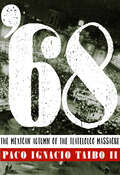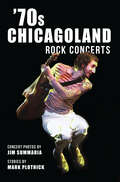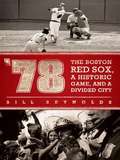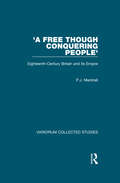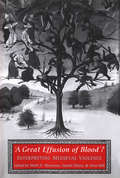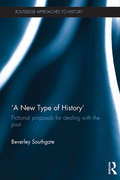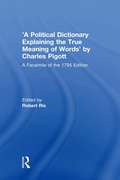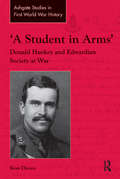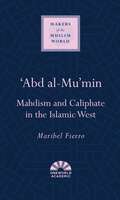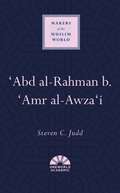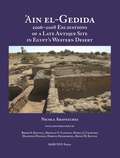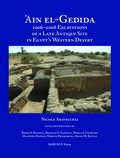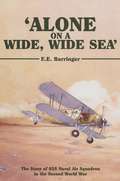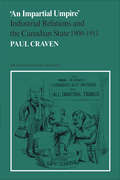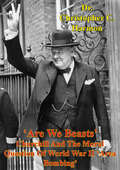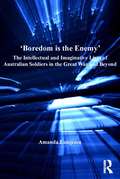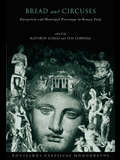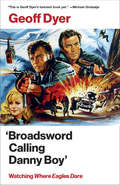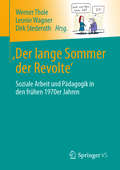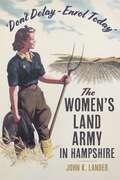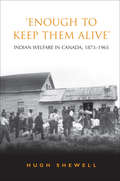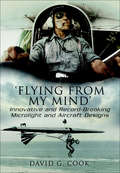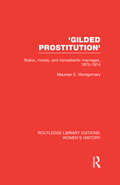- Table View
- List View
'68
by Paco Ignacio Taibo II Donald Nicholson-SmithOn the night of October 2, 1968, there occurred a bloody showdown between student demonstrators and the Mexican government in Tlatelolco Square. At least two hundred students were shot dead and many more were detained. Then the bodies were trucked out, the cobblestones were washed clean. Detainees were held without recourse until 1971. Official denial of the killing continues even today: In the first week of February 2003, Mexico's Education Secretary Reyes Tamiz ordered a new history textbook that mentions the massacre-Claudia Sierra's History of Mexico: An Analytical Approach-removed from shelves and classrooms. (Public outcry led Tamiz to reverse his decision days later.) No one has yet been held accountable for the official acts of savagery. With provocative, anecdotal, and analytical prose, Taibo claims for history "one more of the many unredeemed and sleepless ghosts that live in our lands."
'70s Chicagoland Rock Concerts
by Mark Plotnick Jim SummariaA Portal to Rock 'N' Roll History During the 1970s, Chicagoland venues hosted an eclectic mix of legendary rock 'n' roll acts that thrilled audiences. Fans flocked to historic venues like the Auditorium Theater, International Amphitheatre, Arie Crown Theatre, Kinetic Playground and B'Ginnings to forge relationships and hear music that shaped their youth and endured a lifetime. Acts like Led Zeppelin, the Who, Rolling Stones, Black Sabbath, Wings, Genesis and so many others took the stage here during rock's most prolific and memorable era. Jim Summaria and Mark Plotnick bring those mind-blowing performances back to life with exclusive concert photos, histories, trivia and more.
'78: The Boston Red Sox, A Historic Game, and a Divided City
by Bill ReynoldsNow in paperback: the inside story behind a crucial chapter in Red Sox lore-and a turbulent time in a troubled city. George Steinbrenner called it the greatest game in the history of American sports. On a bright October day in 1978, the Boston Red Sox met the New York Yankees for an epic playoff game that would send one team to the World Series-and render the other cursed for almost a quarter of a century. Award-winning sports columnist Bill Reynolds masterfully tells the dramatic story of the rival teams and players at this pivotal moment, and explores the social issues that divided Boston that summer and their influence on one game beyond the realm of sports.
'A Free though Conquering People': Eighteenth-Century Britain and its Empire (Variorum Collected Studies)
by P.J. MarshallThe present collection brings together a series of studies by Peter Marshall on British imperial expansion in the later 18th century. Some essays focus on the thirteen North American colonies, the West Indies, and British contact with China; those dealing specifically with India have appeared in the author's 'Trade and Conquest: Studies on the rise of British domination in India'. The majority, culminating in the four addresses on 'Britain and the World in the Eighteenth Century' delivered as President of the Royal Historical Society, deal with the processes and dynamics of empire-building and aim to bring together the history of Asia and the Atlantic. The themes investigated include the pressures that induced Britain to pursue new imperial strategies from the mid-18th century, Britain's contrasting fortunes in India and North America, and the way in which the British adjusted their conceptions of empire from one based on freedom and the domination of the seas, to one which involved the exercise of autocratic rule over millions of people and great expanses of territory.
'A Great Effusion of Blood'?
by Oren Falk Mark D. Meyerson Daniel Thiery'A great effusion of blood' was a phrase used frequently throughout medieval Europe as shorthand to describe the effects of immoderate interpersonal violence. Yet the ambiguity of this phrase poses numerous problems for modern readers and scholars in interpreting violence in medieval society and culture and its effect on medieval people. Understanding medieval violence is made even more complex by the multiplicity of views that need to be reconciled: those of modern scholars regarding the psychology and comportment of medieval people, those of the medieval persons themselves as perpetrators or victims of violence, those of medieval writers describing the acts, and those of medieval readers, the audience for these accounts. Using historical records, artistic representation, and theoretical articulation, the contributors to this volume attempt to bring together these views and fashion a comprehensive understanding of medieval conceptions of violence.Exploring the issue from both historical and literary perspectives, the contributors examine violence in a broad variety of genres, places, and times, such as the Late Antique lives of the martyrs, Islamic historiography, Anglo-Saxon poetry and Norse sagas, canon law and chronicles, English and Scottish ballads, the criminal records of fifteenth-century Spain, and more. Taken together, the essays offer fresh ways of analysing medieval violence and its representations, and bring us closer to an understanding of how it was experienced by the people who lived it.
'A Justifiable Obsession'
by Penny Bryden'A Justifiable Obsession' traces the evolution of Ontario's relationship with the federal government in the years following the Second World War. Through extensive archival research in both national and provincial sources, P.E. Bryden demonstrates that the province's successive Conservative governments played a crucial role in framing the national agenda - although this central relationship has received little attention compared to those that have been more volatile. As such, Bryden's study sheds light on an important but largely ignored chapter in Canadian political history.Bryden focuses on the politicians and strategists who guided the province through the negotiation of intergovernmental economic, social, and constitutional issues, including tax policies, the design of the new social welfare net, and efforts to patriate the constitution. Written in a lucid, engaging style that captures the spirit of the politics of postwar Canada, 'A Justifiable Obsession' is a significant contribution to our understanding of Ontario's politics and political culture.
'A New Type of History': Fictional Proposals for dealing with the Past (Routledge Approaches to History)
by Beverley SouthgateLinking fiction with history and historical theory, 'A New Type of History': Fictional Proposals for dealing with the Past focuses on a selection of nineteenth- and twentieth-century novelists – Tolstoy, Proust, John Cowper Powys, Virginia Woolf, Wyndham Lewis, Penelope Lively, and James Hamilton-Paterson – who have criticized scientifically based history and proposed alternative ways of approaching the past: more subjective and personal, colourful and imaginative, and above all ethically orientated. In this, it is argued, they have been reverting to an earlier rhetorical model for history, which is now being increasingly adopted by practising historians. This ‘new type of history’ may lack the claimed ‘objectivity’ and ‘truth’ of its immediate predecessor, but it opens the way for an ethically focused subject that may be used (in Nietzsche’s words) ‘for the purpose of life’. Providing a new take on both novelists and historiography, and ranging widely from the nineteenth century to the present day, this cross-disciplinary study will be valuable reading for all those interested in the intersection and interplay between fiction and history.
'A Political Dictionary Explaining the True Meaning of Words' by Charles Pigott: A Facsimile of the 1795 Edition
by Robert RixConsidering the fact that Charles Pigott's satirical A Political Dictionary (1795) is regularly quoted and referred to in analyses of late eighteenth-century radical culture, it is surprising that until now it has remained unavailable to readers outside of a few specialised research libraries. Until his death on the 24th of June 1794, Pigott was one of England's most prolific satirists in the decade of revolutionary unrest following the French Revolution, writing a number of pamphlets and plays of which only a small proportion have survived. Pigott finished A Political Dictionary in prison, where he served a sentence for sedition. He died before his release and the book was published posthumously. The Dictionary was a brilliant satire on the "language of Aristocracy" and combined radical politics with a high entertainment value. Indeed, part of what he wrote was considered so scurrilous that the printer left out certain lines in the printed version. Modern scholars will find Pigott's work an unrivalled resource for mapping the rhetorical landscape of political debate in the 1790s, and one that yields a unique insight into the sentiments and rhetoric of radical discourse. The text stands as a convenient handbook, providing some of the wittiest and most acidic turns on familiar satirical conventions of the time, such as the "swinish multitude" metaphor and the comparison of King George III to the mad King Nebuchadnezzar. It will be an invaluable aid to students and researchers of the period - both as a highly amusing source of illustrative quotations, and as an encyclopaedia over the central sites of ideological struggle at the time.
'A Student in Arms': Donald Hankey and Edwardian Society at War (Routledge Studies in First World War History)
by Ross DaviesDonald Hankey was a writer who saw himself as a ’student of human nature’ and peacetime Edwardian Britain as a society at war with itself. Wounded in a murderous daylight infantry charge near Ypres, Hankey began sending despatches to The Spectator from hospital in 1915. Trench life, wrote Hankey, taught that ’the gentleman’ is a type not a social class. In one calm, humane, eyewitness report after another under the byline ’A Student in Arms’, Hankey revealed how the civilian volunteers of Kitchener’s Army, many with little stake in Edwardian society, put their betters to shame nonetheless. A runaway best-seller on both sides of the Atlantic, Hankey’s prose vied in popularity with the poetry of Rupert Brooke. After he was killed on the Somme in another daylight infantry charge, Hankey joined Brooke as an international symbol of promise foregone. British propaganda backed publication in the-then neutral United States, yet at home Hankey had to dodge the censors to tell the truth as he saw it. This, the first scholarly biography, has been made possible by the recovery of Hankey papers long thought lost. Dr Davies traces the life of an Edwardian rebel from privileged birth into a banking dynasty that had owned slaves to spokesman for the ordinary man who, when put to the test of battle, proves to be not-so-ordinary. This study of Hankey’s life, writing and vast audience - military and civilian - enlarges our understanding of how throughout the English-speaking world people managed to fight or endure a war for which little had prepared them.
'Abd al-Mu'min: Mahdism and Caliphate in the Islamic West (Makers of the Muslim World)
by Maribel Fierro&‘Abd al-Mu&’min (c.1094–1163) did not establish the first caliphate in the Islamic West, but his encompassed more territory than any that had preceded it. As leader of the Almohads, a politico-religious movement grounded in an uncompromising belief in the unity of God, he unified for the first time the whole of North Africa west of Egypt, and conquered much of southern Spain. Studying every facet of &‘Abd al-Mu&’min&’s rule, from his violent repression of opposition to the flourishing of scholarship during his reign, Maribel Fierro reveals an intelligent leader and a skilled military commander who sought to build a lasting caliphate across disparate and diverse societies.
'Abd al-Rahman b. 'Amr al-Awza'i (Makers of the Muslim World)
by Steven C. Judd&‘Abd al-Rahman b. &‘Amr al-Awza&‘i (c.707–774) was Umayyad Syria&’s most influential jurist, part of a generation of scholars who began establishing the first formal structures for the preservation and dissemination of religious knowledge. Following the Abbasid revolution, they provided a point of stability in otherwise unstable times. Despite his close ties to the old regime, al-Awza&‘i continued to participate in legal and theological matters in the Abbasid era. Although his immediate impact would prove short-lived, his influence on aspects of Islamic law, particularly the laws of war, endures to this day.
'Ain el-Gedida: 2006-2008 Excavations of a Late Antique Site in Egypt's Western Desert (Amheida IV) (ISAW Monographs #8)
by Nicola AravecchiaThe fourth volume in the Amheida series, ‘Ain el-Gedida: 2006-2008 Excavations of a Late Antique Site in Egypt's Western Desert (Amheida IV) presents the systematic record and interpretation of the archaeological evidence from the excavations at ‘Ain el-Gedida, a fourth-century rural settlement in Egypt's Dakleh Oasis uniquely important for the study of early Egyptian Christianity and previously known only from written sources.Nicola Aravecchia (Washington University), the Deputy Field Director of NYU's Amheida Excavations, offers a history of the site and its excavations, followed by an integrated topographical and archaeological interpretation of the site and its significance for the history of Christianity in Egypt. In the second half of the volume a team of international experts presents catalogs and interpretations of the archaeological finds, including ceramics (Delphine Dixneuf, CRNS), coins (David M. Ratzan, NYU), ostraca and graffiti (Roger S. Bagnall, NYU and Dorota Dzierzbicka, University of Warsaw), small finds (Dorota Dzierzbicka, University of Warsaw), and zooarcheological remains (Pamela J. Crabtree, NYU and Douglas Campana).
'Ain el-Gedida: 2006-2008 Excavations of a Late Antique Site in Egypt's Western Desert (ISAW Monographs #8)
by Nicola AravecchiaThe fourth volume in the Amheida series, ‘Ain el-Gedida: 2006-2008 Excavations of a Late Antique Site in Egypt's Western Desert presents the systematic record and interpretation of the archaeological evidence from the excavations at ‘Ain el-Gedida, a fourth-century rural settlement in Egypt's Dakleh Oasis uniquely important for the study of early Egyptian Christianity and previously known only from written sources. <p><p>Nicola Aravecchia (Washington University), the Deputy Field Director of NYU's Amheida Excavations, offers a history of the site and its excavations, followed by an integrated topographical and archaeological interpretation of the site and its significance for the history of Christianity in Egypt. In the second half of the volume a team of international experts presents catalogs and interpretations of the archaeological finds, including ceramics (Delphine Dixneuf, CRNS), coins (David M. Ratzan, NYU), ostraca and graffiti (Roger S. Bagnall, NYU and Dorota Dzierzbicka, University of Warsaw), small finds (Dorota Dzierzbicka, University of Warsaw), and zooarcheological remains (Pamela J. Crabtree, NYU and Douglas Campana).
'Alone on a Wide, Wide Sea': The Story of 835 Naval Air Squadron in the Second World War
by E.E. BarringerThis is the story of 835 Naval Air Squadron as told by one of its surviving officers. It tells the story of the outstanding fleets of flying and the importance of the Merchant Navy in the Second World War.
'An Impartial Umpire': Industrial Relations and the Canadian State 1900-1911
by Paul CravenThis book is an insightful and detailed analysis of Canadian labour relations policy at the beginning of the 20th century, and of the formulation of distinctive features which still characterize it today. The development and reception of this policy are explained as a product of ideological and economic forces. These include the impact of international unionism on the Canadian working class, the emergence of scientific management in business ideology, and the special role of the state in economic development and the mediation of class relationships.The ideas and career of Mackenzie King, including his 'new liberalism,' and his activities in regard to the Department of Labour are examined, revealing how he moulded Canada's official position in the relations between capital and labour. With a focus on King's intellectual qualities in an international context, the author brings out another dimension, portraying him as Canada's first practising social scientist.The book examines implementation of policy through an analysis of the work of the Department of Labour through detailed case studies of government interventions in industrial disputes. The initial acceptance of the labour relations policy by the labour movement is explained and its repudiation in 1911 is examined against a background of setbacks which reflected its practical limits as much as its philosophical orientation. The result is a study which moves beyond a particular concern with labour policy to illuminate the contours of Canadian life in a crucial period of national development.
'Are We Beasts' Churchill And The Moral Question Of World War II 'Area Bombing'
by Dr Christopher C. HarmonThis historical reassessment of the World War II British bombing campaign notes that though in 1940 Churchill declared that he was waging “a military and not a civilian war” to destroy “military objectives” and not “women and children,” within eighteen months both types of targets would be struck by Bomber Command. The author searches for the reasons in “three contiguous realms” of strategic influence: moral (and legal), political, and military. The study concludes that although for much of the war “area bombing” of cities was a “tragic necessity” meeting the ‘reasonable man’s’ standard of what was decently allowable given the blunt weapons the Allies had” and the evils they faced, nonetheless Allied leaders could have and should have abandoned indiscriminate bombing in the last phases of the conflict, when more precise means were at hand and “Nazi power had been overmatched.”
'Aristotle's Nicomachean Ethics'
by Jon MillerAristotle's Nicomachean Ethics is one of the most important ethical treatises ever written, and has had a profound influence on the subsequent development of ethics and moral psychology. This collection of newly-commissioned essays, written by both senior and younger scholars in the field, presents a thorough and close examination of the work. The essays address a broad range of issues including the compositional integrity of the Ethics, the nature of desire, the value of emotions, happiness, and the virtues. The result is a volume which will challenge and advance the scholarship on the Ethics, establishing new ways of viewing and appreciating the work for all scholars of Aristotle.
'Boredom is the Enemy': The Intellectual and Imaginative Lives of Australian Soldiers in the Great War and Beyond
by Amanda LaugesenWar is often characterised as one percent terror, 99 per cent boredom. Whilst much ink has been spilt on the one per cent, relatively little work has been directed toward the other 99 per cent of a soldier's time. As such, this book will be welcomed by those seeking a fuller understanding of what makes soldiers endure war, and how they cope with prolonged periods of inaction. It explores the issue of military boredom and investigates how soldiers spent their time when not engaged in battle, work or training through a study of their creative, imaginative and intellectual lives. It examines the efforts of military authorities to provide solutions to military boredom (and the problem of discipline and morale) through the provisioning of entertainment and education, but more importantly explores the ways in which soldiers responded to such efforts, arguing that soldiers used entertainment and education in ways that suited them. The focus in the book is on Australians and their experiences, primarily during the First World War, but with subsequent chapters taking the story through the Second World War to the Vietnam War. This focus on a single national group allows questions to be raised about what might (or might not) be exceptional about the experiences of a particular national group, and the ways national identity can shape an individual's relationship and engagement with education and entertainment. It can also suggest the continuities and changes in these experiences through the course of three wars. The story of Australians at war illuminates a much broader story of the experience of war and people's responses to war in the twentieth century.
'Bread and Circuses': Euergetism and municipal patronage in Roman Italy
by Kathryn LomasCities in the ancient world relied on private generosity to provide many basic amenities, as well as expecting leading citizens to pay for 'bread and circuses' - free food and public entertainment. This collection of essays by leading scholars from the UK and USA explores the important phenomenon of benefaction and public patronage in Roman Italy.Ranging from the late republican period to the later Roman Empire, the contributions cover a wide range of topics, including the impact of benefactions and benefactors on the urban development of Roman Italy, on cultural and economic activity, and on the changing role of games and festivals in Roman society. They also explore the relationship between communities and their benefactors, whether these were local notables, senators, or the emperor himself, and examine how the nature of benefaction changed under the Empire.
'Broadsword Calling Danny Boy': Watching 'Where Eagles Dare'
by Geoff DyerGeoff Dyer's earlier book on film, Zona, was about Andrei Tarkovsky's Stalker, so it was perhaps inevitable that he should next devote his unique critical and stylistic energies to Brian G. Hutton's Where Eagles Dare. A thrilling Alpine adventure starring a magnificent, bleary-eyed Richard Burton and a dynamically lethargic Clint Eastwood, Where Eagles Dare is the apex of 1960s war movies, by turns enjoyable and preposterous.'Broadsword Calling Danny Boy' is Geoff Dyer's hilarious tribute to a film he has loved since childhood: it's a scene-by-scene analysis—or should that be send-up?—taking us from it's snowy, Teutonic opening credits to its vertigo-inducing climax.
'Der lange Sommer der Revolte': Soziale Arbeit und Pädagogik in den frühen 1970er Jahren
by Leonie Wagner Werner Thole Dirk StederothDie 1970er Jahre sind ohne das, was mit 1968 verbunden wird, kaum zu verstehen und die Ereignisse von 1968 würden möglicherweise heute in ihrer Bedeutung ohne die Veränderungen im darauffolgenden Jahrzehnt geringer eingeschätzt.In dem vorliegenden Band wird an Veränderungen im weiten Feld der Sozialen Arbeit und Erziehungswissenschaft zu Beginn der 1970er Jahre erinnert. Gerahmt werden diese Erinnerungen und kritischen Reflexionen durch Beiträge, die Ereignisse, Auseinandersetzungen und die Suche nach einem neuen Politik- und Kulturverständnis am Ende der 1960er Jahre illustrieren. Neben Beiträgen von Zeitzeug*innen wurden jüngere Wissenschaftler*innen gebeten, die Entwicklung aus ihrer Perspektive zu beleuchten.Die Herausgeber*innenProf. Dr. Werner Thole ist Hochschullehrer an der Universität Kassel.Prof.in Dr. Leonie Wagner ist Hochschullehrerin an der HAWK Holzminden.Prof. Dr. Dirk Stederoth ist Hochschullehrer am Institut für Philosophie der Universität Kassel.
'Don’t Delay - Enrol Today': The Women's Land Army in Hampshire
by John K. LanderThe employment of female labour on farms during two world wars was essential to replace thousands of men who relinquished agricultural jobs to join the armed forces. ‘Land girls’, the majority of them from urban districts, maintained supplies of grain, horticultural products and livestock, succeeding in overcoming substantial reductions in food imports caused by disruptive enemy action to the pattern of shipping trade.Hampshire played a major part in the national selection, training and placing of land girls on farms. They undertook hard, physical work in all weathers for many hours a day, often a long way from home. It is generally agreed that Women’s Land Army members received inadequate recognition for their valuable contributions.Seventy-five years after the final disbandment of the Women’s Land Army, this book intends to correct that deficiency and shed light on its invaluable work.
'Enough to Keep Them Alive'
by Hugh E.Q. ShewellFar from being a measure of progress or humanitarian aid, Indian welfare policy in Canada was used deliberately to oppress and marginalize First Nations peoples and to foster their assimilation into the dominant society. 'Enough to Keep Them Alive' explores the history of the development and administration of social assistance policies on Indian reserves in Canada from confederation to the modern period, demonstrating a continuity of policy with roots in the pre-confederation practices of fur trading companies.Extensive archival evidence from the Indian Affairs record group at the National Archives of Canada is supplemented for the post-World War Two era by interviews with some of the key federal players. More than just an historical narrative, the book presents a critical analysis with a clear theoretical focus drawing on colonial and post-colonial theory, social theory, and critiques of liberalism and liberal democracy.
'Flying from My Mind': Innovative and Record-Breaking Microlight and Aircraft Designs
by David G. CookThe memoirs of a hang glider pilot and pioneer and his first-hand account of designing the revolutionary Shadow microlight aircraft. This fascinating story begins in 1973 when David Cook built a glider in an attempt to win the Selsey Birdman Rally—an annual event where all types of creations are launched from the end of Bognor Pier. Between 1975 and 1977 he won every National and International hang gliding competition entered, and then in 1977 he designed and built a power unit for his glider. In 1978 it became the first and lowest-powered microlight to cross the English Channel. Cook&’s successes in this venture led to sponsorship from Duckhams Oils and there followed a period of demonstration flights at major air shows. In 1982 he designed a microlight called Shadow and in 1983 it took the FAI world speed and distance records for the class. In 1992 he took the aircraft to 23,600 ft to claim the world altitude record for the class, beaten later by himself in a newly designed Streak to 27,150 ft. David started a company to build the Shadow in 1984 and has demonstrated its remarkable flying abilities around the world, during which time he had many amusing and some exciting experiences. In 1987 the Shadow won the British Design Award.
'Gilded Prostitution': Status, Money and Transatlantic Marriages, 1870-1914 (Routledge Library Editions: Women's History)
by Maureen E. MontgomeryThis book examines the marriages of British peers to American women within the context of the opening up of London and New York society and the growing competitiveness for high social status. In London, American women were often blamed for the growing hedonism and materialism of smart society and for poaching in the marriage market. They were invariably described as frivolous, vain and calculating – a description which points to the simmering anti-American sentiment in Britain. It was even suggested that titled Americans were having a detrimental effect on the British peerage because of their failure to produce male heirs. A brilliant analysis of the reasons why American women were viewed pejoratively not only in terms of anti-American feeling and the social transformation of the British upper class, but also the threat of women who did not appear to conform to aristocratic notions of a peeress’s duties as a wife and mother.Originally published in 1989, this book has unique appendices listing details of peer marriages in this 1870-1914 period.
